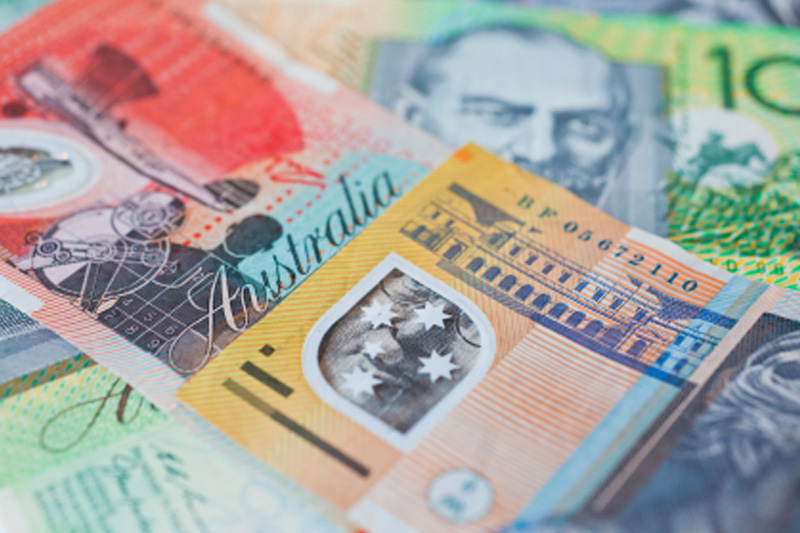Investing.com - The Australian dollar jumped after manufacturing data from China, while the euro recovered a bit, but still traded down as investors await the twist and turns of the Greek debt talks and the upcoming referendum.
AUD/USD rose 0.23% to 0.7722, while EUR/USD eased 0.04% to 1.1139. USD/JPY changed hands at 122.50, flat.
Japan's June quarter Tankan survey of business sentiment showed plus-15 for the diffusion index (DI) for major manufacturers, up from plus-12, while the index for major non-manufacturers came in at plus-23, higher than the plus-22 expected and up from plus-19 in March.
In Australia, the June AIGroup manufacturing index fell 9.1 points to 44.2, a two-year low. The index was at 52.3 in May.
Also in Australia, May building approvals rose 2.4%, well above the gain of 1.0% expected, and compared to a 4.4% fall in April. The RBA's commodity price index ( down 1.6% previously) is due at 1630 (0630 GMT).
In China, the June CFLP manufacturing and services PMI came in at 50.2, just a tad below the 50.3 expected and unchanged from the previous month.
The final reading of the Markit manufacturing PMI however came in at 49.4, compared to the flash of 49.6 and May's final 49.2.
"The final reading of the HSBC China Manufacturing PMI pointed to a further decline in the health of the manufacturing sector in June," Markit economist Annabel Fiddes said.
"This was predominantly driven by the sharpest rate of job shedding across the sector since early 2009 while output also fell slightly on the month. On the upside there were some signs of improvement in the shape of renewed increases in total new orders and new export business - suggesting that client demand both at home and abroad is reviving. However, it is likely that more stimulus measures will be required to ensure that the sector can regain growth momentum and to encourage job creation."
The International Monetary Fund issued the following release on Wednesday in Asia regarding Greece's missed June 30 payment to the Fund.
Mr. Gerry Rice, Director of Communications at the International Monetary Fund (IMF), made the following statement today regarding Greece's financial obligations to the IMF due today:
"I confirm that the SDR 1.2 billion repayment (about €1.5 billion) due by Greece to the IMF today has not been received. We have informed our Executive Board that Greece is now in arrears and can only receive IMF financing once the arrears are cleared.
"I can also confirm that the IMF received a request today from the Greek authorities for an extension of Greece's repayment obligation that fell due today, which will go to the IMF's Executive Board in due course."
The U.S. dollar index, which measures the greenback’s strength against a trade-weighted basket of six major currencies, was down 0.01% at 95.74.
Overnight, the dollar remained broadly higher against a basket of other major currencies on Tuesday, after data showed that U.S. consumer confidence improved more than expected in June and as an almost certain default by Greece continued to support safe-haven demand.
The Conference Board reported on Tuesday that its index of consumer confidence rose to 101.4 this month from a reading of 94.6 in May, whose figure was revised from a previously reported 95.4. Analysts expected the index to rise to 97.3 in June.
Greece requested a new two-year bailout program, just hours ahead of a deadline for what looked to be an almost certain debt default by Athens.
The Greek government requested a new bailout from the European Stability Mechanism to cover the country’s financial need for the next two years, which would run alongside debt restructuring.
